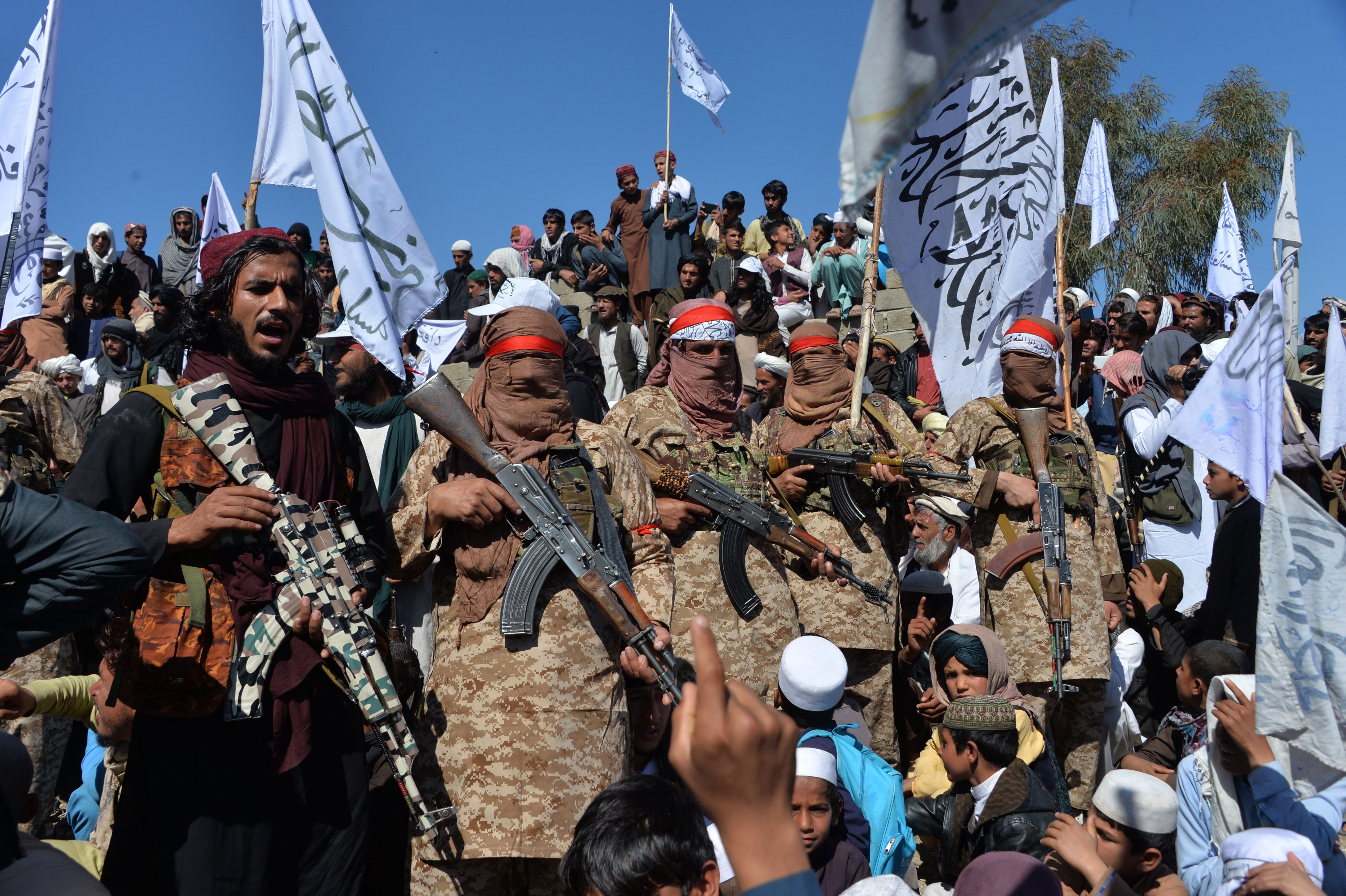WASHINGTON — Less than 24 hours after President Donald Trump said he had a “very good talk” with a Taliban leader and insisted the militants want to end the violence, a U.S. military drone targeted the group in retaliation for an uptick in attacks against Afghan forces.
It made clear the fragility of the U.S.-Taliban deal signed last weekend aimed at ending America’s longest war. Secretary of State Mike Pompeo, who witnessed the signing of that agreement in Qatar, said Thursday that the violence was not acceptable.
“We know that the road ahead will be difficult,” Pompeo told reporters at the State Department. “We expected it. We were right. The upsurge in violence in parts of Afghanistan over the last couple days is unacceptable. In no uncertain terms violence must be reduced immediately for the peace process to move forward.”
RELATED
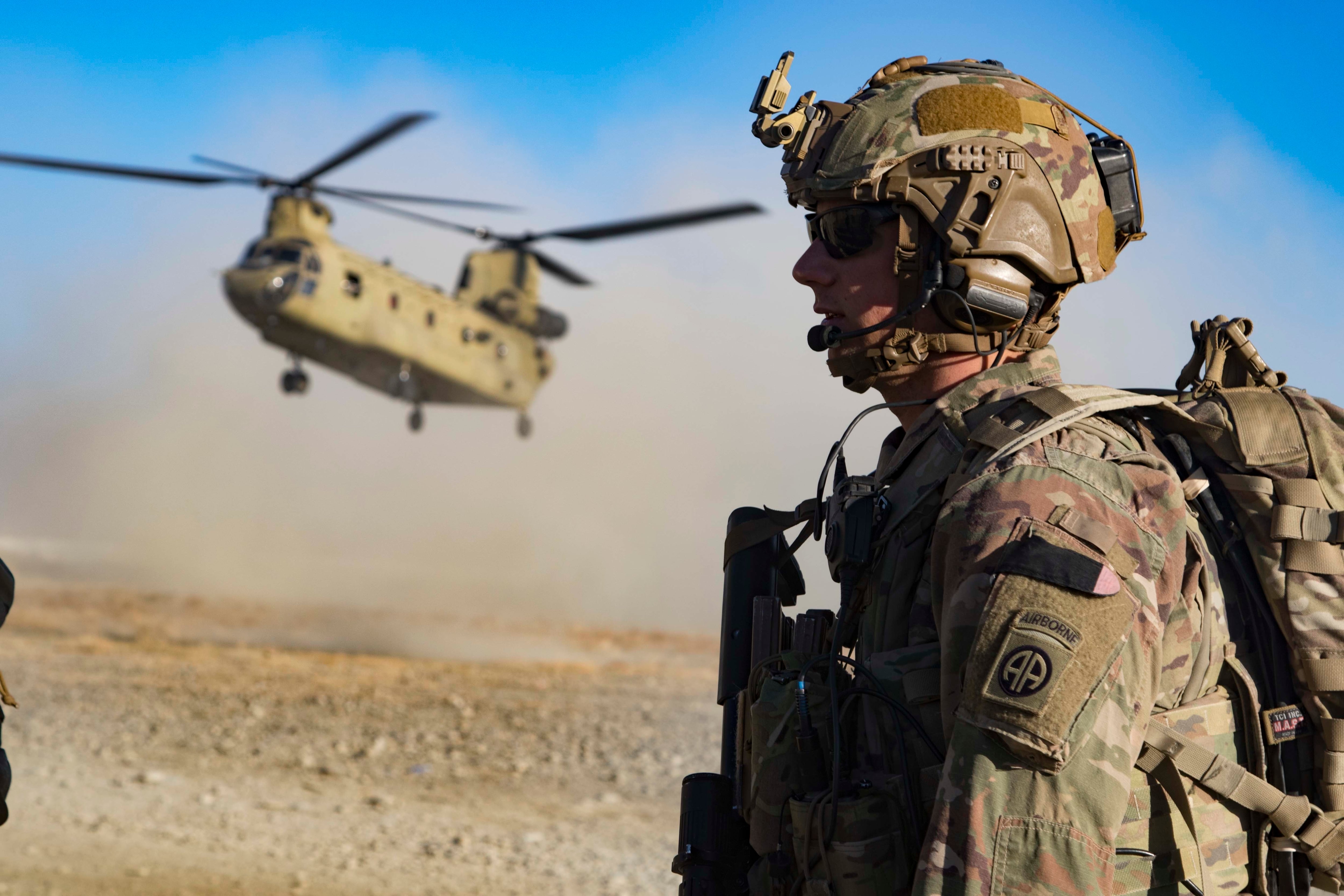
U.S. officials said Wednesday’s airstrike was intended as a message to the Taliban to continue to enforce a reduction in violence commitment they had agreed before their peace talks with the Afghan government that are supposed to begin next week.
Officials noted that the deal did not include a full cease-fire but left negotiations on a nationwide truce to the follow-up talks. It did not say that the truce or completion of a peace accord were required conditions for the withdrawal of American troops.
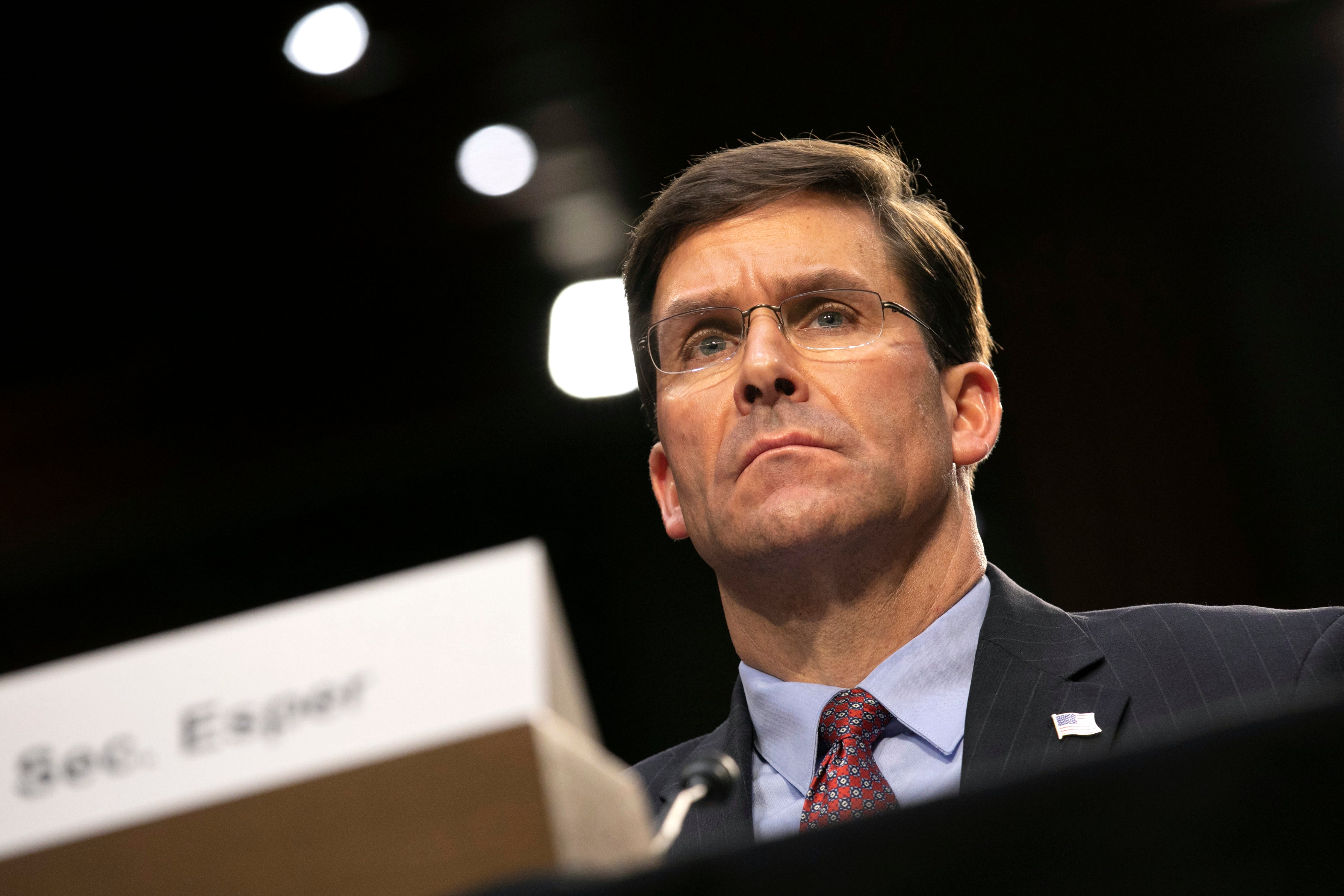
Defense Secretary Mark Esper told senators on Wednesday that the Taliban were honoring the agreement by not attacking U.S. and coalition forces, “but not in terms of sustaining the reduction in violence.” He added: “Keeping that group of people on board is a challenge. They’ve got their range of hard-liners and soft-liners and so they’re wrestling with that too, I think.”
Esper said the document allowed the U.S. to act in defense of the Afghan forces. The peace deal says the U.S. must begin withdrawing more than 4,000 U.S. troops from Afghanistan in the next week or so.
Still, a surge in Taliban attacks since the peace deal was signed, coupled with the refusal thus far of the Afghan government to release thousands of Taliban prisoners, may have imperiled the planned Tuesday start of the Afghanistan negotiations. Pompeo called on all sides to get the process moving.
“We continue to press all sides to stop posturing, start a practical discussion about prisoner releases, knuckle down and prepare for the upcoming inter-Afghan negotiations,” he said. “The future of this peace process isn’t just about what we do, or what the Taliban does, it’s about getting the Afghan people together to solve this problem that has plagued Afghanistan for now 40 years.”
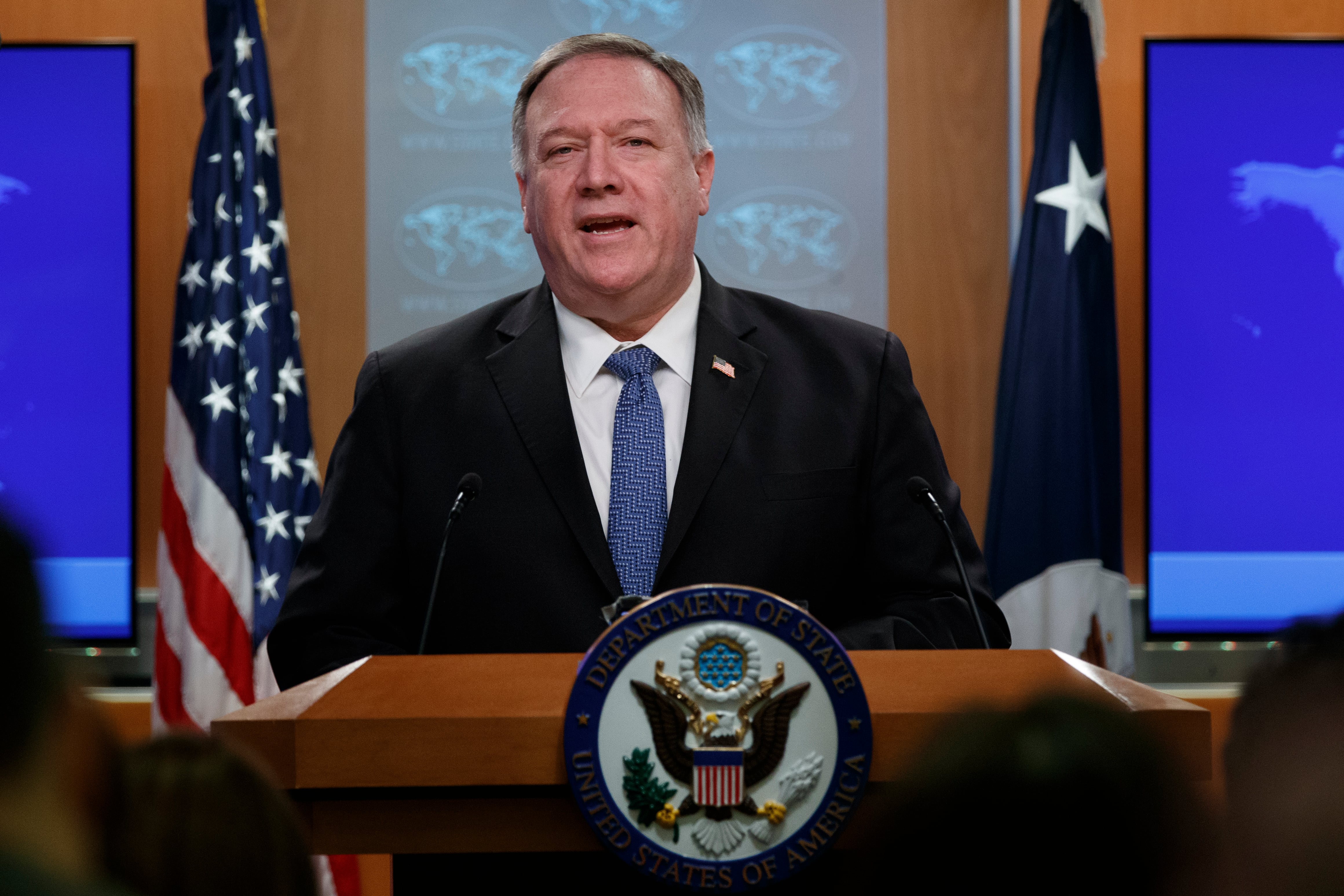
U.S. lawmakers expressed concern that the U.S.-Taliban agreement gave away too much for too little and may threaten America’s national security. They also complained about two annexes to the agreement that have not been made public that lay out the process for the withdrawal of American and allied troops.
Even Trump allies such as Sen. Lindsey Graham, R-S.C., and Rep. Liz Cheney, R-Wyo., have aired doubts.
U.S. military spokesman Col. Sonny Leggett said in a tweet that Wednesday’s “defensive” strike was aimed at countering a Taliban assault on Afghan government forces in southern Helmand province. He said Taliban forces had conducted 43 attacks on Afghan troops on Tuesday in Helmand, where the local governor’s official said two police officers were killed.
The Afghan Interior Ministry said four civilians and 11 troops were killed Wednesday in a wave of Taliban attacks across the country.
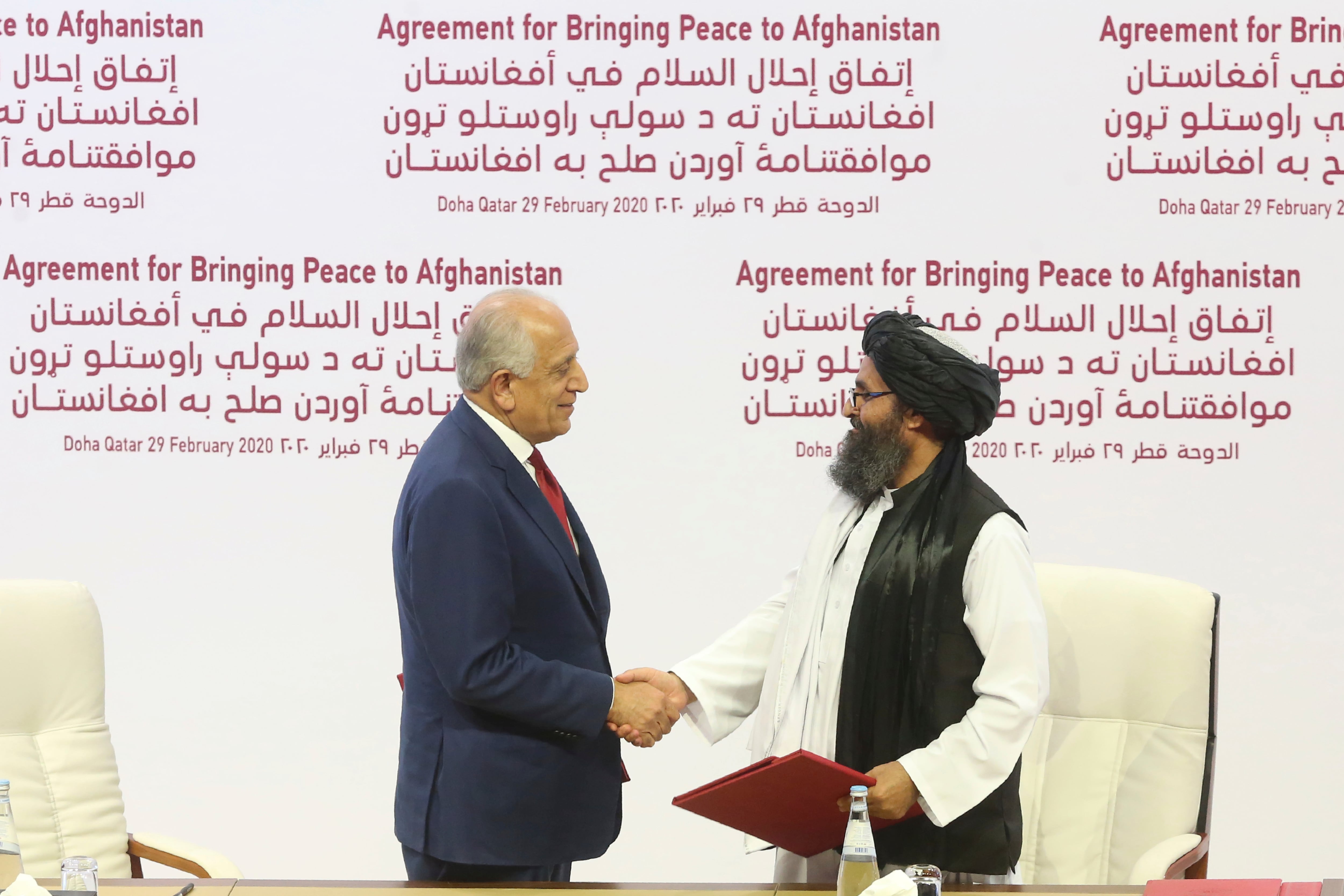
In his account of the call with Mullah Abdul Ghani Baradar, a co-founder of the Taliban and head of their political office in Qatar, Trump told reporters that his relationship with Baradar is “very good” and that the Taliban “want to cease the violence.”
The White House readout of the call was more restrained. It said Trump had “emphasized the need to continue the reduction in violence” and urged the Taliban to participate in the intra-Afghan talks.
In a tweet Wednesday, the U.S. special representative, Zalmay Khalilzad, said he had met with Baradar and other Taliban members before the call with Trump. “We all agreed the purpose of the US-Taliban agreement is to pave the path to a comprehensive peace in Afghanistan,” he said.
Trump has looked to the agreement as a step toward making progress on his campaign pledge to extract U.S. troops from “endless wars.”
